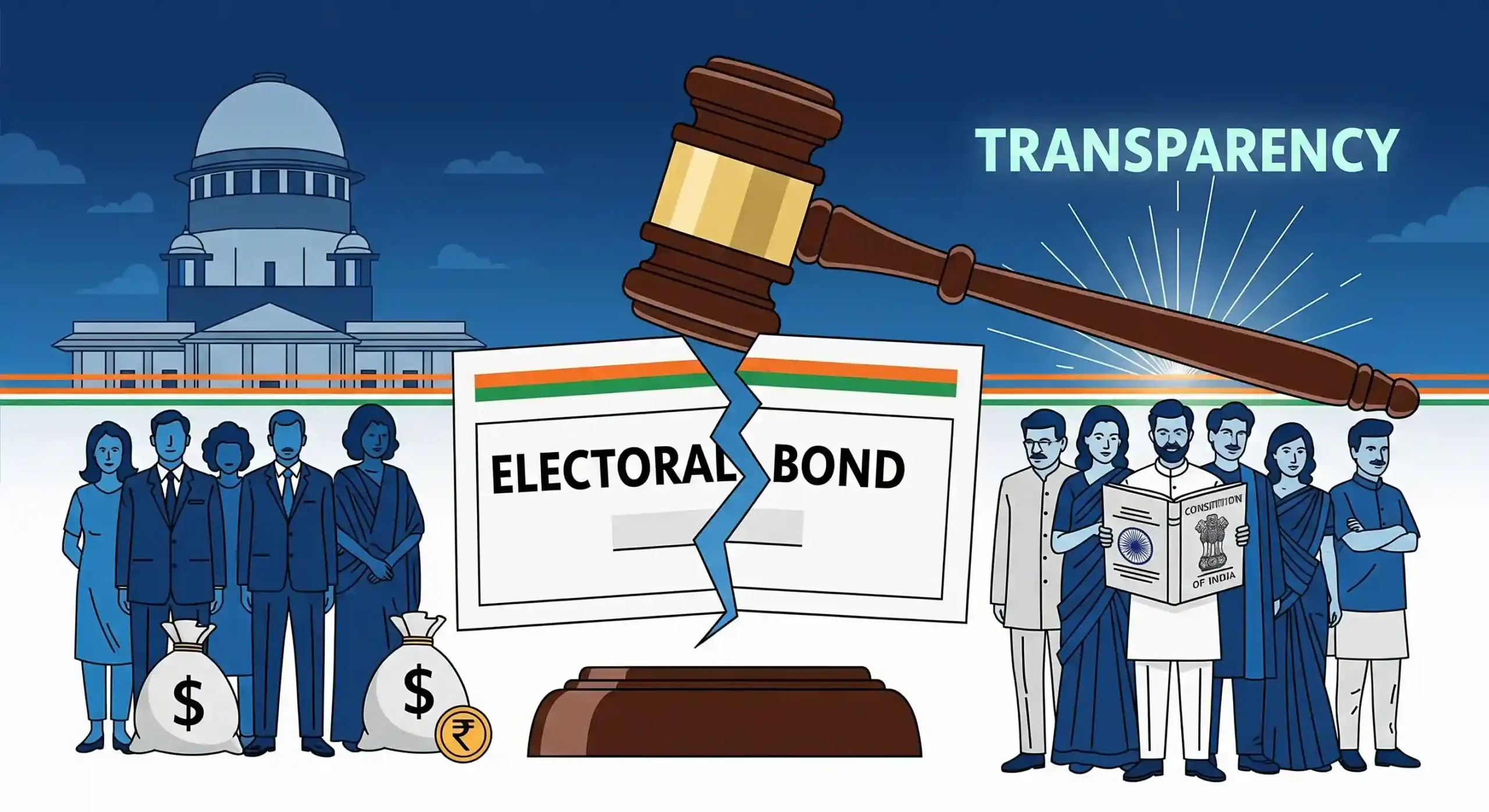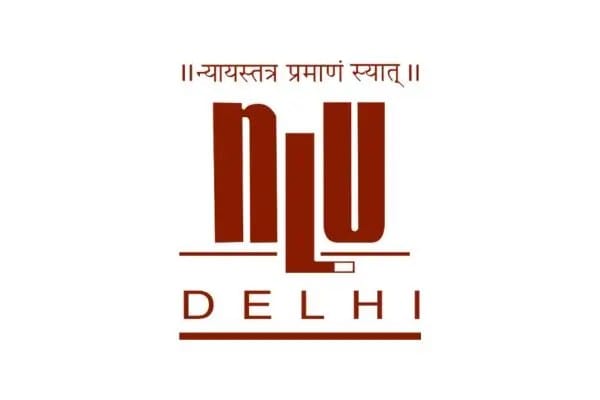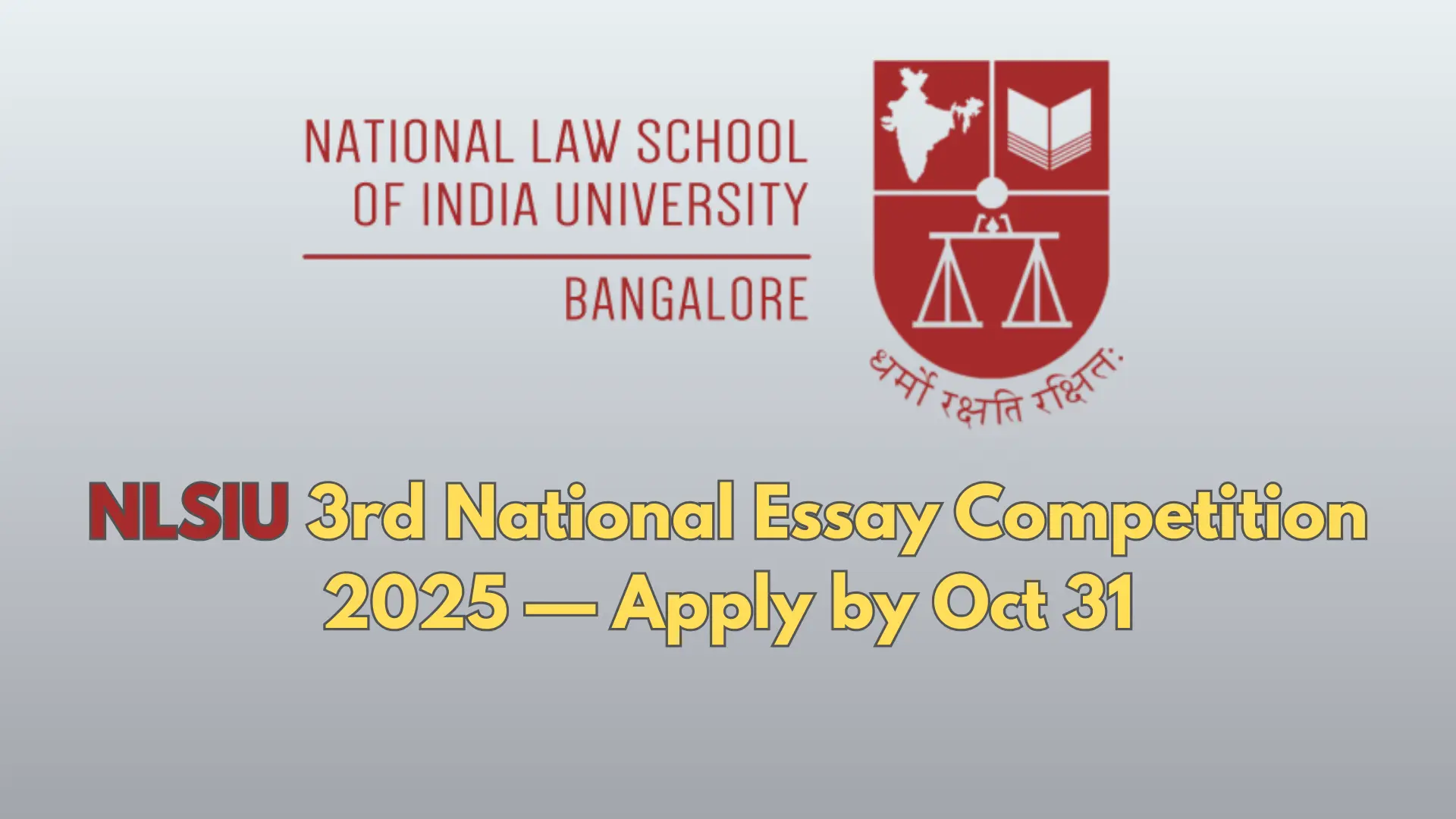If you’re a law student in India, you know one truth: every big constitutional case is not just about legal jargon, but about how democracy actually breathes (or suffocates). Association for Democratic Reforms v. Union of India (2024) is one of those cases that’ll probably show up in exams, internships, debates, and even late-night hostel discussions about “judicial activism vs. legislative overreach.”
At its core, this case was about whether anonymous political donations through Electoral Bonds should exist in a democracy that thrives on transparency. Spoiler: the Supreme Court struck it down, and the way they did it is a masterclass in constitutional reasoning.
Citation: 2024 INSC 113
Court & Bench: Supreme Court of India, a five-judge Constitution Bench comprising the Chief Justice
D.Y. Chandrachud, Justice Sanjiv Khanna, Justice B.R. Gavai, Justice J.B. Pardiwala, and Justice
Manoj Misra.
Date of Judgment: 15/02/2024
Electoral Bonds Scheme: The Big Picture
So here’s what went down. Back in 2018, the government introduced Electoral Bonds—fancy-looking bearer instruments you could buy from SBI and donate to political parties. They were pitched as a way to clean up black money in politics.
But there was a catch:
- Donors stayed anonymous to the public.
- Political parties didn’t need to disclose these donations.
- Corporates could pour unlimited money (after the 7.5% cap in the Companies Act was scrapped).
Basically, it looked like a legal loophole to funnel massive amounts of cash to political parties without voters knowing who’s paying whom.
The Constitutional Questions Raised
The Supreme Court had to untangle three big issues:
1. Right to Know vs. Donor Anonymity
Article 19(1)(a) gives us the right to freedom of speech and expression, and courts have consistently said that includes the right to information. If voters don’t know where political money is coming from, can they really make an informed choice?
The government argued anonymity protects donors from political harassment. Petitioners argued that secrecy kills accountability.
2. Unlimited Corporate Funding = Policy Capture?
By removing the cap on corporate donations, the Companies Act basically opened the door for quid pro quo politics. Imagine a pharma giant funding a party and then magically seeing favorable drug pricing laws the next year. That’s exactly what the petitioners warned against.
3. Money Bill Shortcut
The Finance Act changes were passed as a Money Bill, bypassing Rajya Sabha scrutiny. That’s a separate constitutional headache (parked for another case), but it shows how the scheme was bulldozed into law.
The Supreme Court’s Verdict
On 15 February 2024, a five-judge bench led by CJI D.Y. Chandrachud dropped the hammer:
- Electoral Bonds are unconstitutional.
- They violate voters’ right to information under Article 19(1)(a).
- The proportionality test was applied: yes, black money is a problem, but anonymous funding is neither necessary nor the least restrictive method to tackle it.
The Court also ordered SBI to hand over all past bond data to the Election Commission, which then made it public. For the first time, voters saw which corporates were bankrolling which parties.
Why This Case Matters for Democracy
Here’s why law students and future lawyers need to bookmark this case:
- Right to Information expanded again. This isn’t just about RTI applications—it’s about making informed electoral choices.
- Corporate influence exposed. The judgment basically said: money influencing politics is not just an economics problem, it’s a constitutional problem.
- Checks and balances in action. The judiciary reminded the legislature: you can’t use clever legal drafting (Money Bill route) to sneak in anti-democratic laws.
This ruling is as much about constitutional morality as it is about technical law.
Key Legal Takeaways
- Proportionality Doctrine → Courts won’t allow fundamental rights to be curbed unless it’s the least restrictive option.
- Right to Know = Core of Democracy → Voters must know who funds parties.
- Privacy v. Transparency → Donor privacy exists, but it doesn’t trump citizens’ right to an informed vote when it comes to corporate donations.
Student Perspective: What We Can Learn
As law students, this case teaches us more than just case law citations:
- Constitutional Law isn’t abstract—it’s about real power, money, and democracy.
- Always ask: Does the law actually work the way the government says it does, or is it a legal fiction? The Court looked at the de facto impact of bonds, not just the de jure promise of anonymity.
- This judgment fits the larger Chandrachud CJ narrative: privacy, autonomy, equality, transparency > majoritarian shortcuts.
Conclusion: The Bold Reality Check
ADR v. Union of India is not just another case—it’s a constitutional slap on the wrist to any government that thinks it can quietly turn democracy into a corporate marketplace.
For us students, it’s a reminder: law isn’t just about statutes and sections, it’s about whether citizens can hold power accountable. The Supreme Court didn’t just talk transparency, it enforced it by making donor data public.
As future lawyers, we should carry this principle forward: democracy without transparency is just oligarchy with better PR.
📚 Judgment & Case Sources
- Supreme Court Observer – Case background & summary:
https://www.scobserver.in/cases/association-for-democratic-reforms-electoral-bonds-case-background/ - India Kanoon – Full judgment text:
https://indiankanoon.org/doc/121499464/ - Supreme Court of India – Official Judgment PDF (15 Feb 2024):
https://api.sci.gov.in/supremecourt/2017/27935/27935_2017_1_1501_50573_Judgement_15-Feb-2024.pdf
🌐 Context & Analysis
ADR India Blog – The Legal Architecture of Electoral Bonds in India:
https://adrindia.org/content/article-18771-the-legal-architecture-of-electoral-bonds-in-india-an-analysis-of-the-supreme-court-s-judgment-on-transparency-and-corporate-funding
Wikipedia (Case Page):
https://en.wikipedia.org/wiki/Association_for_Democratic_Reforms_v._Union_of_India
Wikipedia (Electoral Bonds Scheme):
https://en.wikipedia.org/wiki/Electoral_bonds
SSRN – Understanding Electoral Bonds: A Constitutional Analysis:
https://papers.ssrn.com/sol3/papers.cfm?abstract_id=5208368
DasLegal Blog – Electoral Bond Scheme Unconstitutional – ADR v Union of India (2024):
https://www.daslegal.co.in/electoral-bond-scheme-unconstitutional-a-landmark-verdict-in-association-for-democratic-reforms-v-union-of-india-2024/








